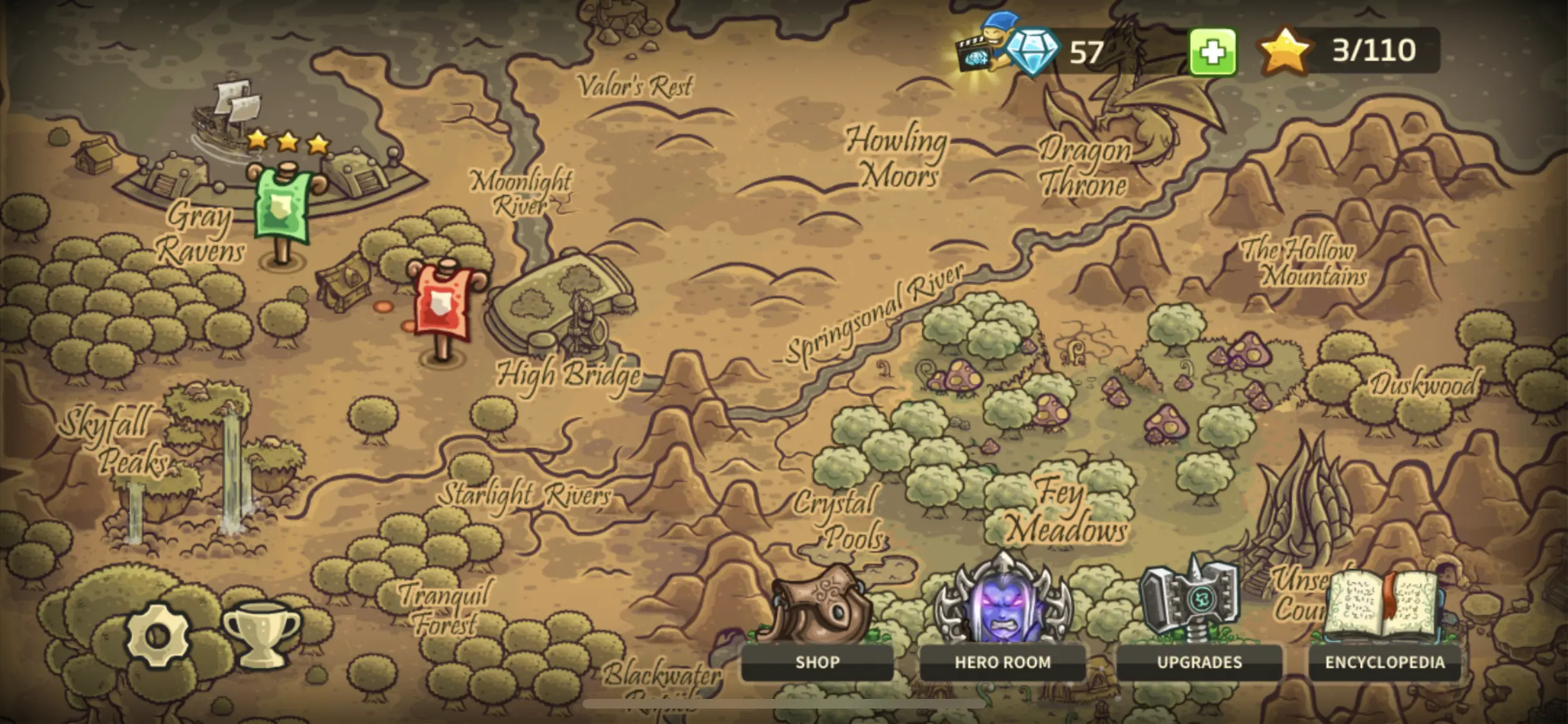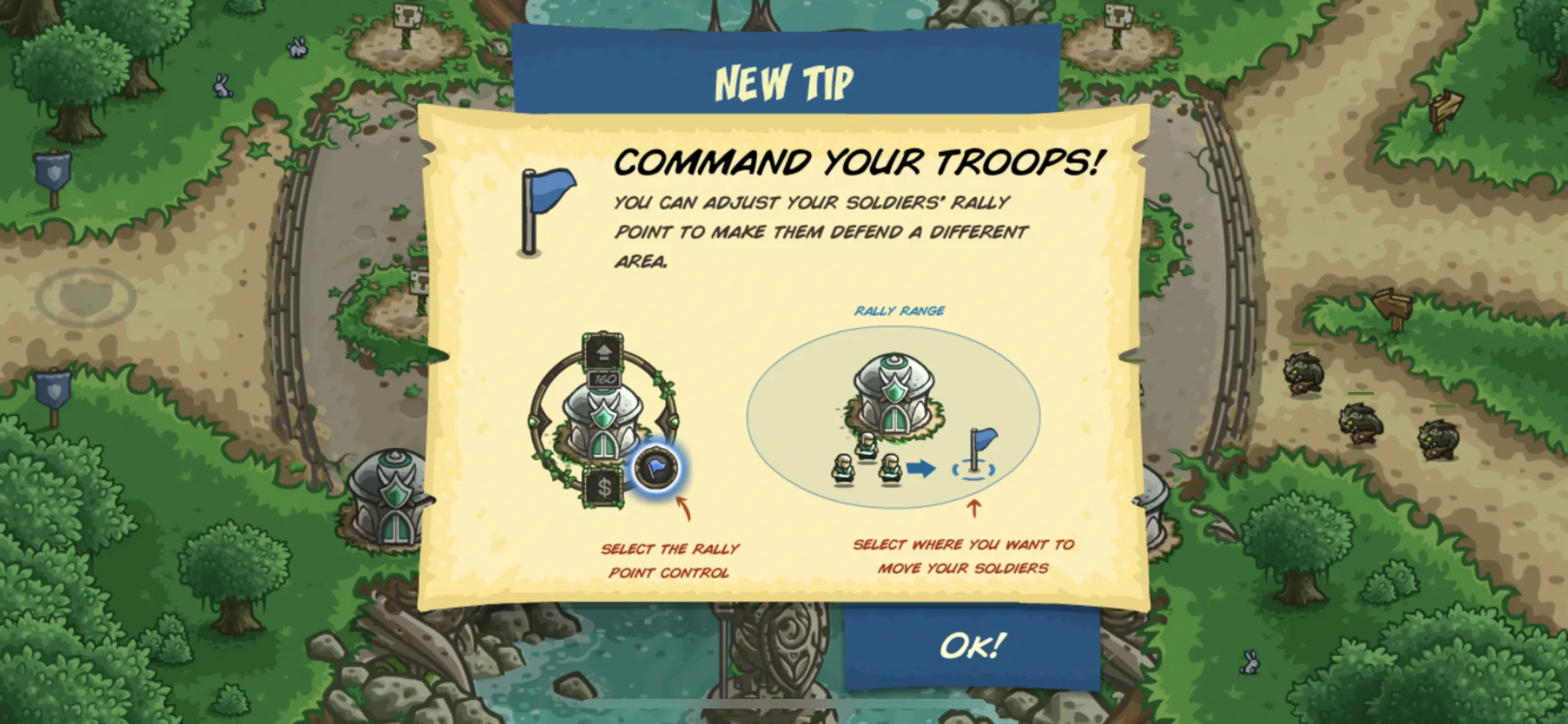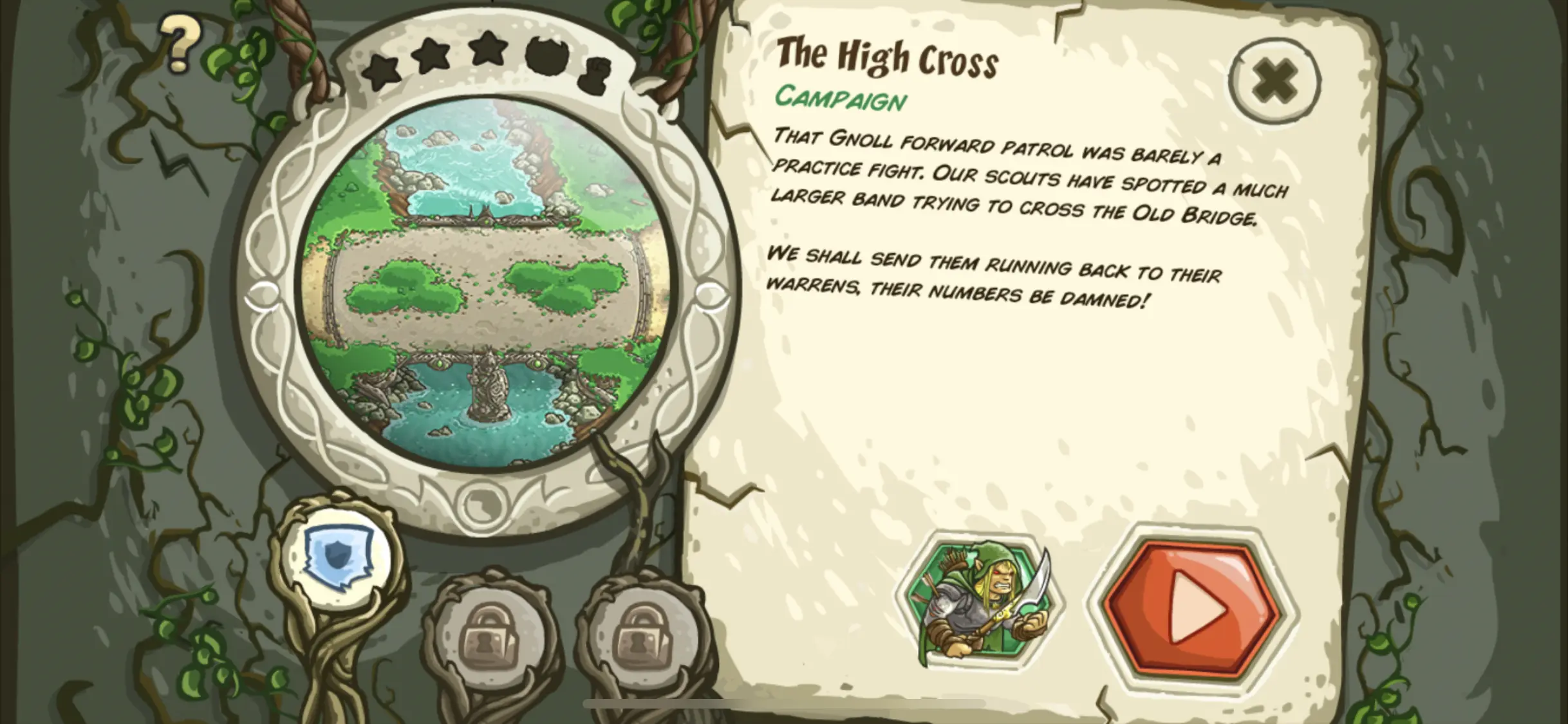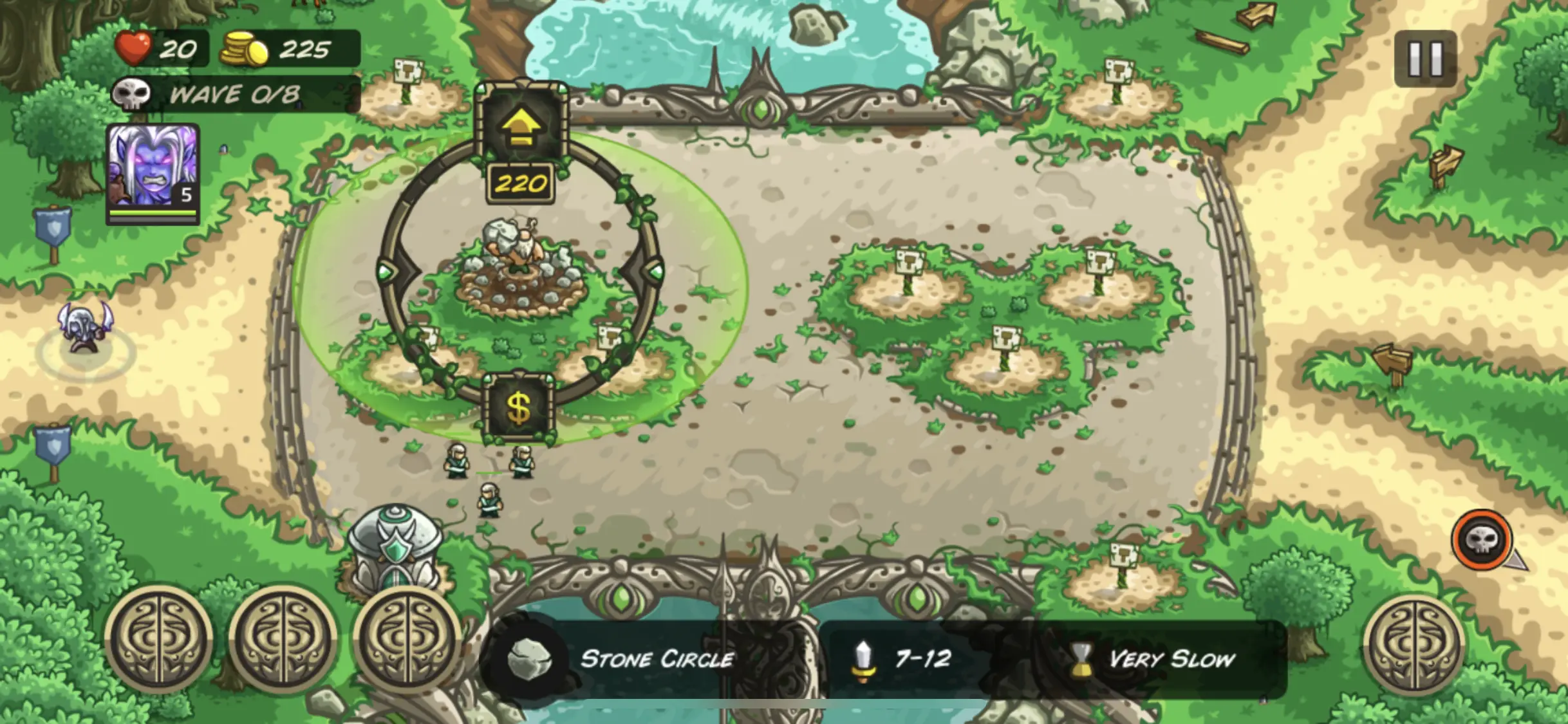by Stuart Urback
Kingdom rush is available for iOS, Android, Nintendo Switch, and Mac App Store.
What is it?
Kingdom Rush is a series of tower defense strategy games that I've played on iOS (and briefly the web game in college, I think). A tower defense game is a type of game where rather than moving around a world, you are managing a castle that automated enemies are attacking along a path. Your goal is to build the right towers in the right locations to defeat the enemies before they reach your base. If enough enemies reach your base you lose and have to start the level over.

It is weird to sit here and write this as the world goes through the coronavirus. John Prine died last week due to coronavirus. It feels embarrassing to admit how much that impacted me, given the extent that I knew him before I learned about his diagnosis (and the clip of the Late Show) was limited. But he was important to my wife, and her family, and doing a bit of research I saw how much of an impact he had on his world. As a person who imagines having an outsized impact on the world, someday, it was hard to look at my current article, about a tower defense game for my phone, and compare that to the magnitude of suffering and despair that was going on in the world.
Life is challenging because of the uncertainty. We take actions, occasionally we get feedback (that isn't even related to the challenge), occasionally (often) we are beset by things that have no relationship to our morals, our worth, or our current situation. On some days (especially days in the middle of a pandemic), simply trying to stay afloat feels like inadequate. Kingdom Rush downshifts from a lot of other fantasy games that focus on growth and exploration. It takes the trappings of fantasy, and wraps them around a cheesy plot and cute miniature sized characters. A game that pokes fun at fantasy tropes without doing so in an obnoxious or overly-winky way can be good, necessary even.
Why I love it
It would be easy to frame this review in terms of the value of escapism: small distractions that take us out of reality are valuable simply because they give us another place to be are important. I tend to find that un-compelling, because meaningful experiences, for me, often lie on the boundary between "real" experiences, and experiences that exist solely in my head. It's the interplay between the two that's meaningful, even in small, silly games.
Rather than focus on exploration, discovery, and self-improvement, Kingdom Rush focuses on survival, in what I found to be a gentle way. At the start of each new wave, an icon pops up that shows you where the wave is going to come from and what types of units are going to be in the wave. You can plan around this, building towers and upgrades to counter those units. The game tells you how many units there will be in a level, and what wave you are currently on. At a moment like this, that amount of information can be downright generous.

After going through a couple of levels, it's possible to deduce that each wave will be slightly more challenging than the last, usually. So early on you can spend your time building up resources and taking risks, knowing that they may pay off in the future when the tougher wave comes through. All you have to do is react by doing the right thing at the right time, and if you don't, you will also know this, because the wave of enemies will go from manageable to impossible and overwhelming. You don't need to be proactive, all you need to do is react in the right way in the right time with the limited toolset you've been given in order to succeed.

Games are meaningful because they latch onto very peculiar ways that our brains like to divvy up and consider the world, the same that stories do. Games have meaning the same way that other, smaller habits have meaning. Like when I fiddle with my ring to relax myself during a meeting. While I'm turning the shape, it also gives me the feeling that I'm tapping back into the energy of my wedding, the love, the community, the people who have given their time to me. Many games use uncertainty as a source of novelty. Games like Breath of the Wild, Sekiro, or Fortnite are fun exactly because we don't know what's coming next and we're excited by that. But tower defense games like Kingdom Rush are more about managing uncertainty. By allowing us to process it they occasionally remind us that we are capable of managing the (semi)unknown. That we don't have to defeat our uncertainty, getting through it is enough.
Biggest Moments of Friction
There are two moments that stand out to me where my expectations of Kingdom Rush and what actually happened felt the most disconnected, where the minimal uncertainty began to feel threatening rather than novel: using the character hero, and losing a number of hearts during early waves.
Heroes in Kingdom Rush are characters who have special powers and can move freely throughout the board. But, unlike the other buildings, they can be attacked and die. In theory they should help you be more effective, because you can move them to the space on the map where you need the most help, but in practice I often ended up not using my hero effectively, or watching them die because I moved them to the wrong spot and I forgot to move them when their health got low.

Gold in Kingdom Rush is directly connected to the enemies that you defeat. For each enemy you prevent from reaching your base, you make a small amount of gold. However, especially early on, this means that any enemy you fail to stop, can create a feedback loop, preventing you from purchasing the towers and upgrades you need to stay alive. In these situations, I found it useful to simply restart the game and try a new configuration for my starting towers.
Going Further
Maybe don't go further right now. It can feel easy in a moment like this, where we're all at home to have pressure to do all of the things that you never had time to do. But re-reading is good too. It can take you deeper into a system and unlock different ways of seeing something you've taken for granted.
If you've completed Kingdom Rush, consider going back through and beating the levels using a new hero, or going through the challenges on a harder difficulty setting, or trying one of the extra challenges.
The opinions in this post are expressly the views of the author and do not reflect the views of their employer(s) or any entities that they might otherwise be affiliated.